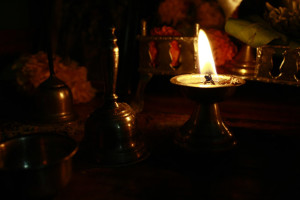The Sacred Art of Ceremony
In this edition of Soul  Notes we explore the meaning and depth of the sacred art of ceremony.
Notes we explore the meaning and depth of the sacred art of ceremony.
CEREMONY CEREMONIOUS!
The word ceremony comes from the root, ceres, meaning: creator. Many modern day ceremonies date back to ancient times, and are said to stem from sacred rites performed in honor of the Creator. Additionally, they often involve certain formal activities, acts, or rituals. They may or may not be tied to religious functions or precepts. With or without a religious tie-in, there is a prevailing sacredness to ceremony.
Types of Ceremonies: Some familiar, some maybe not so familiar
Across various cultures, we can all picture a number of ceremonies that come to mind. For example: graduation ceremonies, weddings, funerals, “swearing in” ceremonies, and initiation ceremonies. Others may be unique to a particular culture or region, such as the Japanese Tea ceremony. As a Keeper of the Water apprentice, I’ve been trained to lead Full Moon and Sacred Water Meditation ceremonies, as part of an ancient Native American practice, handed down through the generations. All ceremonies carry with them, and bring forward, meaningful traditions.
Common Elements
What do all these ceremonies tend to have in common? With each, there’s a certain set of formalities, guidelines, and structure to follow. These aspects allow you to know that you’re taking part in a ceremony, as opposed to a more ‘ordinary’ event. There’s a devout reverence, and honoring that takes place. It often serves as a marker of some sort, in one’s life. Emotions generally run high and deep.
Often, there is also a “setting of the scene” with the placement and invocation of sacred objects. These sacred objects are often blessed and used solely for the purpose of ceremony. When not brought forth for ceremony, they are usually held in a safe, sacred space until needed.
The Role of a Ceremonialist
Another distinction of ceremonies is that they are led, governed, presided over, or facilitated by someone designated or chosen to do so. Often, it’s the ceremonialist who proclaims and maintains the intention for a particular ceremony. As I’ve been taught, it’s important for the ceremonialist to set aside ego, and allow the heart to take center stage. Additionally, the ceremony leader’s role is to ensure an atmosphere of reverence, safety and security for those who are participating and are in attendance. With compassion, the ceremony leader creates and maintains a sacred (metaphysical) container to hold a spiritual space and environment. The physical and the metaphysical are very much connected. It’s really about embracing and maintaining divine presence for all involved. It’s essential that the ceremony leader allow for the varying energies to move through in a way that is attentive, respectful, and connected to the heart, spirit and soul. Those who are participating in and witnessing the ceremony can feel it!
A friend’s wedding
This past weekend, a friend and I hit the highway, and took a road trip to attend a mutual friend’s wedding. As with many weddings, on this occasion, friends and family members gathered from near and far, to witness the marriage of two people special in all of our lives, and dear to every one of us. As the priest explained to those of us in attendance, our very being there added a beautiful and essential element. Our presence served in effect as an extension of their love. There were smiles all around when he said that! There’s a beauty in the witnessing of a sacred union, and in a commemoration of a solemn commitment.
There’s also something beautiful and touching about seeing multiple generations coming together for such an occasion. I marveled at the sight of the grandmothers, with the wisdom of their years, sitting alongside nieces and nephews with their young eagerness, excitement, and dare I say slight perplexity and overall wonderment about the whole experience!
I was also struck by the solemnity and juxtaposition of another friend having just flown in from attending a loved one’s funeral, making it in time to attend this wedding, an event that of course had been planned for months. So raw. So emotional. So pure. Facades, if any, were removed. “All that really matters” is what came to the forefront, and in clear focus.
Why are Ceremonies so Important?
Ceremonies serve as a marker. They commemorate and punctuate the occasion. They lend it grandeur, a sense of awe, and solemnity. Ceremonies and all that they entail lend texture, context, and richness to our lives. I love them!
For your consideration:
I welcome you to take a moment to reflect on your own life. To what kinds of ceremonies are you most drawn? For you, what makes a ceremony a “ceremony,” as opposed to some other type of event or happening?
Okay, your turn:
When is the last time you participated in ceremony? Or, what is the most memorable ceremony you can recall? What made these experiences so special?
I invite you to share your thoughts, feelings, and experiences in the Comments section, below. Soul-to-soul!


